Intro
Discover key facts about Carvedilol 25mg, a beta-blocker medication, including its uses, benefits, and side effects, to manage hypertension, heart failure, and angina, with insights into dosage, interactions, and patient reviews.
Carvedilol 25mg is a medication that has been widely used in the management of various cardiovascular conditions, including high blood pressure and heart failure. The importance of understanding the effects, benefits, and potential side effects of carvedilol cannot be overstated, especially for patients who are considering this medication as part of their treatment plan. In this article, we will delve into the world of carvedilol 25mg, exploring its uses, mechanisms of action, and what patients can expect when taking this medication.
The management of cardiovascular diseases is complex and multifaceted, requiring a comprehensive approach that includes lifestyle modifications, dietary changes, and often, pharmacological intervention. Carvedilol 25mg is one such pharmacological agent that has proven beneficial in the treatment of certain heart conditions. By understanding how carvedilol works and what it can do for patients, individuals can make more informed decisions about their health care.
Carvedilol 25mg is a beta-blocker, which means it works by blocking the effects of the hormone epinephrine, also known as adrenaline, and by slowing the heart rate and reducing its workload. This mechanism of action can lead to a decrease in blood pressure and can help the heart work more efficiently, especially in conditions like heart failure. The benefits of carvedilol extend beyond just lowering blood pressure; it has been shown to reduce the risk of hospitalization and death in patients with heart failure, making it a valuable component of treatment plans for these patients.
Introduction to Carvedilol 25mg
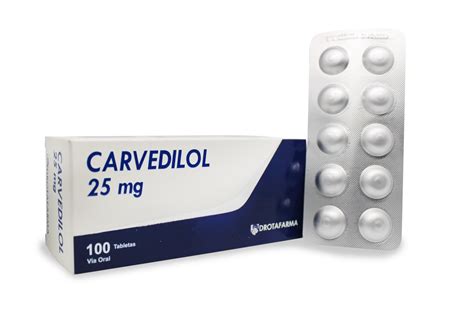
Benefits of Carvedilol 25mg
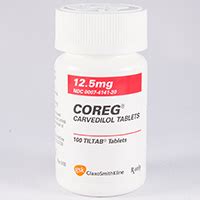
How Carvedilol 25mg Works
Carvedilol 25mg works by blocking beta receptors in the heart, blood vessels, and other body tissues. This blockade leads to a decrease in heart rate and the force of contraction, reducing the amount of oxygen the heart muscle needs. It also causes blood vessels to relax and widen, which lowers blood pressure and increases the supply of blood and oxygen to the heart.Side Effects of Carvedilol 25mg
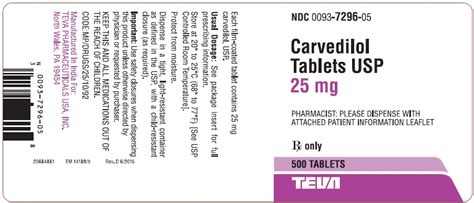
Precautions and Warnings
Before starting carvedilol 25mg, patients should inform their healthcare provider about any medical conditions they have, especially asthma, chronic bronchitis, emphysema, or other breathing problems; diabetes; hyperthyroidism (an overactive thyroid); liver disease; or a history of severe allergic reactions. Carvedilol may mask symptoms of low blood sugar or make them worse, and it can also worsen certain conditions, such as heart block or peripheral vascular disease.Interactions with Other Medications
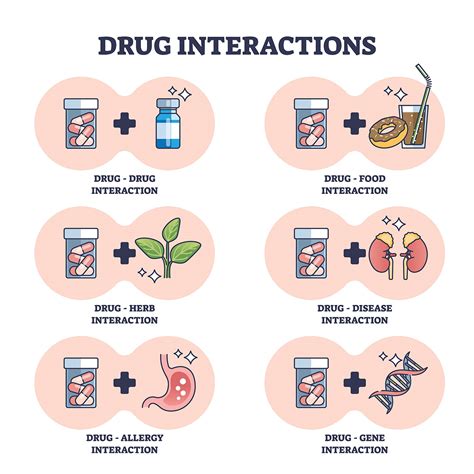
Dosage and Administration
The dosage of carvedilol 25mg can vary depending on the patient's condition and how they respond to the medication. It's crucial to follow the prescription instructions carefully and not to stop taking carvedilol without consulting a healthcare provider. Stopping the medication abruptly can lead to worsening of angina or heart attack in some patients.Conclusion and Future Directions
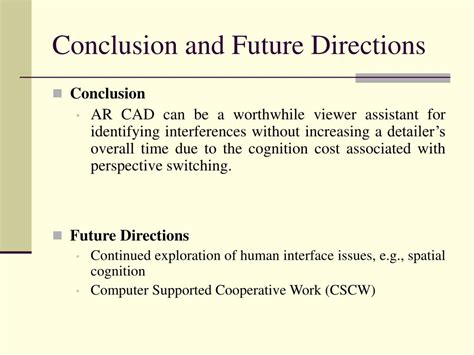
Final Thoughts
For individuals considering carvedilol 25mg as part of their treatment, it's essential to maintain open communication with their healthcare provider. By understanding the medication's benefits, potential side effects, and how it interacts with other medications, patients can make informed decisions about their health care. Furthermore, adherence to the prescribed regimen and regular follow-up appointments are crucial for maximizing the benefits of carvedilol 25mg.What is carvedilol 25mg used for?
+Carvedilol 25mg is used to treat high blood pressure and heart failure. It belongs to a class of medications known as beta-blockers.
What are the common side effects of carvedilol 25mg?
+Common side effects include dizziness, lightheadedness, fatigue, and diarrhea. Less common but more serious side effects can include shortness of breath, swelling of the feet or hands, and chest pain.
Can I stop taking carvedilol 25mg without consulting my healthcare provider?
+No, it's crucial not to stop taking carvedilol without consulting your healthcare provider. Stopping the medication abruptly can lead to worsening of angina or heart attack in some patients.
We invite you to share your thoughts and experiences with carvedilol 25mg in the comments below. Your insights can help others understand the benefits and challenges of this medication. If you found this article informative, please consider sharing it with others who may benefit from this information. Together, we can promote better health and well-being by sharing knowledge and supporting one another.
